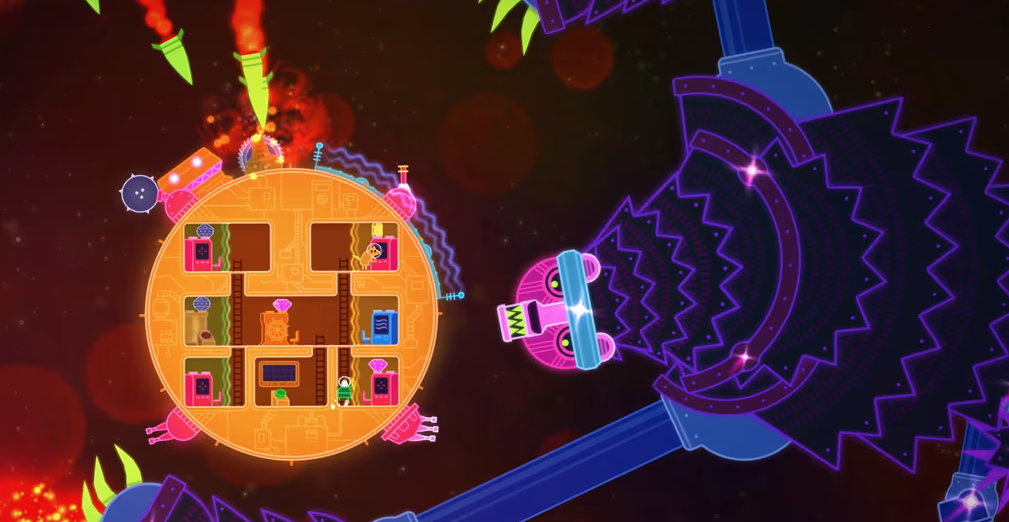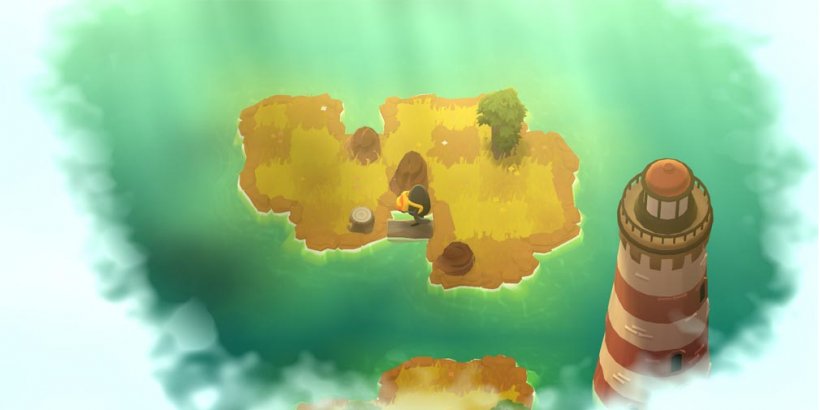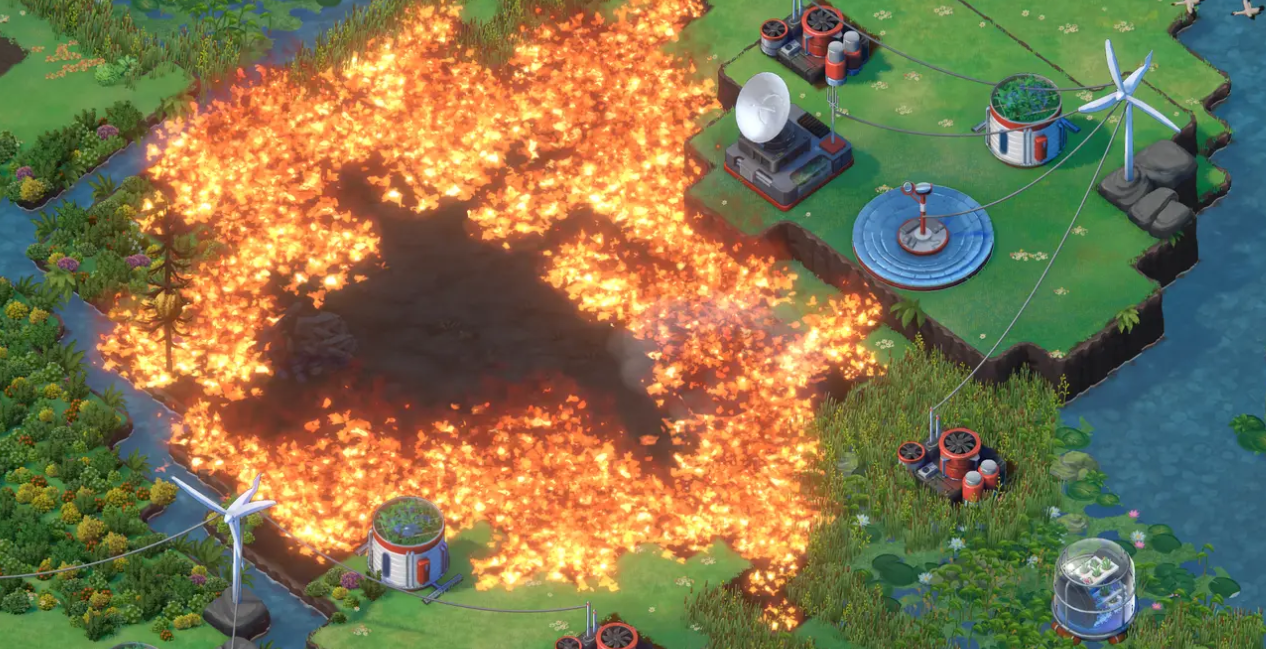Experimental Game Design is a studio course focusing on innovative and expressive forms of gameplay. We will explore foundational game design principles, as well as common programming patterns used in video games and interactive media. Together, we will develop a deeper understanding of works that push the boundaries of gaming, while acquiring skills that can enrich creative practices beyond game development. The course is structured around three playable projects, which can be created individually or in teams. While some coding experience is recommended, the course provides extensive templates and is designed to be accessible to beginners and visual artists.
Carnegie Mellon University School of Art
Term: Spring 2025
Course number: 60418
Classroom: CFA 303
Days / time: 08:00AM – 10:50AM Tuesday + Thursday
Professor: Paolo Pedercini – paolop [at] andrew [dot] cmu [dot] edu
Office: School of art 419A – 4th Floor
Office hours: By appointment
LEARNING OBJECTIVES
Upon completion of the course you will be able to:
> Use a game engine and scripting to create interactive artworks
> Scope a project according to limited time and resources
> Work collaboratively across different aspects of game production
> Identify promising concepts and accept failures or dead ends
> Add at least one piece to your creative portfolio
> Contextualize your work within contemporary cultural practices
> Develop your personal style and artistic identity
UNITS
Arcade
Assignment: Recreate the game asteroids, then create a novel variant starting from an assigned prompt.
Topics: intro to game engine, common game patterns, controls, physics, game feel, dynamic instantiations, arrays and lists, prefabs and instances. Spacewar, early game history, rules, modding (history of modding), theme and presentation, multiplayer co-op and vs, prototyping, iteration.
Puzzle
Assignment: Paper-prototype a grid sliding puzzle, iterate on it, and implement it digitally starting from a template.
Topics: Paper prototyping, grids, puzzle design, level management, learning curve, progression, modularity.
Simulation
Assignment: Starting from an abstract sandbox game, create a simulation game that exhibits emergent behavior.
Topics: Sim City, emergence, complexity, sims and simulations, basic procedural generation, resource management, scriptable objects (data), sandbox games, UI.
Final project
Determine the most successful prototype, expand and polish it into a finished game.
Topics: scoping, visual style, polishing, branding, QA, self-publishing.
GRADING
Qualitative feedback during in-class critiques is the most important form of evaluation, but we live in a quantified society so grades need to happen.
You will be evaluated differently in the two part of the class.
Fast prototyping phase
A – The prototype has all the core functionalities, an aesthetic direction, and attempts to do something innovative
B – The prototype has all the core functionalities, and an aesthetic direction
C – The prototype doesn’t have all the core functionalities, and/or an aesthetic direction. It is not possible to evaluate its potential.
D – no delivery
F – no show
Final project phase
A. Outstanding concept and implementation. The project can be published and added to your portfolio.
B. The project is original and complete, all the core components are functional, but it feel unpolished and not ready to “ship”.
C. The game is incomplete and/or the idea is derivative.
D. The game doesn’t work, it has major bugs or is incomplete to a point that is impossible to get a clear idea of the user experience.
E. The student failed to deliver the assignment.
Making (and teaching) games is hard because there different dimension of success and failure.
Ideally your game:
Works as artwork – does something innovative, it’s in dialogue with contemporary artmaking, it tackles complex issues.
Works as experience – the player understands what to do, it’s aesthetically polished, it’s well presented and enticing, the difficulty level and learning curve are adequate for the intended audience.
Works as game – the gameplay is not broken, there are no dominant strategies, the gameplay succeeds in its own terms (a roguelike is replayable, an exploration game makes you want to explore, a match 3 game is addictive).
Works as software – it runs, the features are complete, it doesn’t crash, there are no bugs.
Final grade composition
20% Arcade
20% Puzzle
20% Simulation
20% Final project
20% Class Participation
REQUIRED MATERIAL
-A laptop. You don’t need a powerful gaming computer but consider we won’t be working in a computer lab.
-The charger is not optional.
-Software: all the programs used in this class are free or provided by the school. You may have to purchase some individual licenses and subscriptions to certain games or plugins depending on your project. The overall expenses should not exceed $100.
POLICIES
I’ll ask you to read and sign a little contract. We will discuss it and amend it on the first day of class.
* Absences:
My well being come first, if I am sick I should stay at home. I will inform the professor of my absences via email.
I am responsible to catch up with the class, and to look into the material that I have missed.
I expect most of the class material to be on this website, and understand that many class activities can’t be experienced asynchronously or online.
I am aware that repeated absences may trigger additional scrutiny from the school administration.
* Participation:
I will engage actively in discussions and critiques.
I expect the professor to adopt a variety of critique formats to account for different personality types.
* Net addiction
I value face-to-face interaction, so I commit to not use phones and computers during lectures, critiques, and discussions, ie. any time somebody is speaking to the class.
* Computer habits
I understand that using my personal laptop will require more responsibilities on my side:
-I will disable all push notifications from social media unrelated to class
-I will reboot my system before class and close all the applications
-I will bring and use a mouse when it’s required
-I will bring and use my charger all the time
-I will make sure I have enough room in my hard drive
-I will make sure I have all the required applications installed
-If unable to meet these basic requirement I will use the lab computers
* Communications
I will use the class Discord to keep up with asynchronous communications, announcements, and questions that could be of general interest.
To keep a proper record, I will use the CMU email for personal communication with the professor.
*Assignments
I will negotiate late assignment submissions with the professor at least 24 hours before the deadline. I understand it will have to be justified and will not be automatically granted.
I will be present and participate to critiques even if I don’t have my work.
*Tardiness
I will be in class before the official beginning of the session.
I understand that late arrivals may affect my grade: arriving over 10 minutes late more than 3 times = 10% grade reduction.
*Office hours
I am entitled to a one-to-one meeting with the professor for feedback and general check-in every semester.
*Plagiarism and “collaborations”
I acknowledge that the concept of plagiarism is somewhat elusive in digital media as we working with open source tools and libraries, remixing and building upon the work of a multitude of people.
However I will not outsource the class work to other people nor plagiarize assignments and exercises from my classmates.
*Community agreements
These statement apply to both student and instructors:
We will speak from our own experiences (make ‘I’ statements).
We will respect differences; we’re all privileged in some ways.
We agree to critique ideas, not people.
We will not assume the identity of others, nor ask individuals to speak for their perceived social group.
We will hold this as a brave space, where we take risks, be vulnerable and hold each accountable with love and respect.
We agree to have only ‘one mic’: we will listen respectfully without interrupting.
We agree to practice active listening: when someone is speaking, we will listen without also thinking about how we are going to respond/rebut.
We may share what we learn but will keep others’ stories and personal experiences in confidence.
We will ‘move up, move up’: those who tend to speak a lot will ‘move up’ their listening; those who tend
to hold back and listen will ‘move up’ their speaking.
INCLUSIVITY STATEMENT
It is my intent that students from all diverse backgrounds and perspectives be well served by this course, and that the diversity that students bring to this class be viewed as a resource, strength and benefit. It is my intent to present activities that accommodate and value a diversity of gender, sexuality, disability, age, socioeconomic status, ethnicity, race, and culture.
I will gladly honor your request to address you by your preferred name and gender pronoun. I commit to make individual arrangements to address disabilities or religious needs (e.g. religious events in conflict with class meetings). Please advise me of these preferences and needs early in the semester so that I may make appropriate changes to my plans and records.
Debate and free exchange of ideas is encouraged but I will not tolerate harassment, i.e. a pattern of behavior directed against a particular individual with the intent of humiliating or intimidating.
CONTENT/TRIGGER WARNINGS
Being in an art school, you should expect to be exposed to content that challenges your moral, ethical, and aesthetic values. In case of extremely graphic content I will warn the class in advance, but if you have a history of PTSD please let me know privately if there are types of content that are known to act as trauma triggers for you.
STRESS CULTURE
Collaborative work and projects also fulfilling other classes’ requirements are encouraged as long as it makes sense, and the other professors agree.
Official university language: Take care of yourself. Do your best to maintain a healthy lifestyle this semester by eating well, exercising, avoiding drugs and alcohol, getting enough sleep and taking some time to relax. This will help you achieve your goals and cope with stress.
All of us benefit from support during times of struggle. You are not alone. There are many helpful resources available on campus and an important part of the college experience is learning how to ask for help. Asking for support sooner rather than later is often helpful.
If you or anyone you know experiences any academic stress, difficult life events, or feelings like anxiety or depression, we strongly encourage you to seek support. Counseling and Psychological Services (CaPS) is here to help: call 412-268-2922 and visit their website at http://www.cmu.edu/counseling/. Consider reaching out to a friend, faculty or family member you trust for help getting connected to the support that can help.



